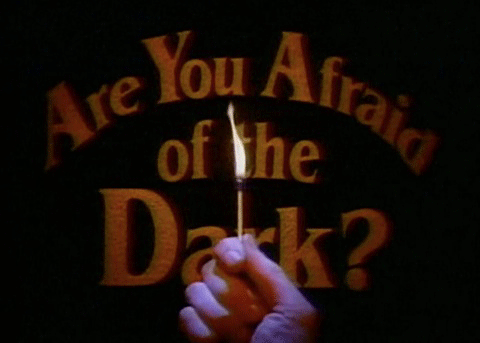Recently I’ve been a bit slack with my sleep hygiene, which is why I was so annoyed the other night when I had totally avoidable hallucinations from eating a bowl of cereal right before bed. I should know better by now!
That’s why I decided to write this list of things that can help you lessen the frequency or severity of your episodes, both for your benefit and mine.
This advice is a mix of things that I have found work for me, things that other PWN have suggested and things that are commonly mentioned in literature on the subject. Not everything is guaranteed to work for everyone, but most of them would be worth a try!
I should also mention that this list doesn’t include things like basic sleep hygiene, a good diet and regular exercise (which are all very helpful but are not specific to these symptoms) 🙂
1) Don’t sleep on your back
Sleeping in the supine position (the technical term for sleeping on your back) is a known risk factor for sleep paralysis and hallucinations. One study of sleep paralysis sufferers showed that incidents of sleep paralysis were more common when sleeping in the supine position than all other positions combined. In order to avoid changing position while asleep, you can use the old trick of sewing a tennis ball into a pocket on the back of your pajamas.

2) Learn lucid dreaming
Lucid dreaming is what happens when we become aware of ourselves within our own dreams. Most people will wake up shortly after this realisation, but those who can stay asleep are often able to control aspects of their dream while existing inside it (as some will remember depicted in the movie Inception).
This capability can be invaluable for redirecting the content of dreams and hallucinations alike, allowing the dreamer to make choices that direct the action away from frightening areas. The mere ability to recognise hallucinations as being unreal can often be enough to reduce their impact, even without the ability to control them. For practical ideas on achieving lucidity, check out these tips on becoming a lucid dreamer.
3) Try other dream control techniques
While lucid dreaming can be helpful, it is not the only way you can direct the path of your dreams. Image Rehearsal Therapy has been shown to decrease nightmares in those with chronic nightmares linked to PTSD.
To try this technique, simply write down a description of one of your recurring nightmares (or hallucinations). Next, think of a way to change the outcome to a positive. For example, if you always dream about falling, write an alternate version in which you realise you have a parachute or learn how to fly. It doesn’t matter how silly the idea seems, as long as it leaves you without the fear of the original nightmare. Once you have decided upon your new dream, practice visualising this dream occurring for a few minutes every day.
4) Don’t give your brain spooky ammunition
This may not apply to everyone, but personally I am very sensitive to anything vaguely scary. I don’t watch horror movies, crime shows, or even let people talk to me about scary things! This is because I know that these ideas will just sit around in my brain waiting for a chance to traumatise me later in my sleep.

5) Don’t eat straight before bed
I know this is an obvious one for anyone who knows the first thing about sleep hygiene, but this is a biggie for me as pretty much every single time I eat and then fall straight to sleep I will have hallucinations and often sleep paralysis.
For me things like cereal and bread are the worst culprits. As for the idea that eating cheese gives you nightmares, apparently it is simply a myth.
6) Listen to music or podcasts while falling asleep
When I was a kid, I used to have a trick for getting back to sleep if I woke up in the middle of the night from a bad dream… I would sing a song in my head until I fell asleep again to prevent myself from starting to think about the nightmare again. This lessened the chance that I would slip back into the frightening dream.
Strangely this technique doesn’t work as well when I am going to sleep initially upon going to bed, as it has a tendency to keep part of my brain active and lead to more hallucinations.

7) Sleep with the light on
This is my fallback plan – if I’ve tried to fall asleep normally and keep having problems with hallucinations or sleep paralysis I will give up and sleep with the light on for that night (or until I wake up later and switch it off). I’ve noticed that this makes my sleep worse, but it is better than battling through the frightening alternative.
I know this doesn’t work for everyone, but for me it is enough to reassure me that nothing untoward is going on, and I can relax enough to get to sleep without issues.
Of course, this is not a comprehensive list, but these are the things that I find make the most difference for me.
If you have any more ideas on avoiding hallucinations or sleep paralysis, please leave a comment below! 🙂
x Elle






I didn’t realize what it was called in college, but my freshman year I figured out I could no longer sleep on my stomach (which I was big on until that point)…I would fall into REM sleep so quickly. About 4-5 years later, I realized my sleep was more restful on my side (I attributed it to sleep apnea but I don’t really actually have sleep apnea and it was probably something N related) so I’ve been a side sleeper ever since (12-13 years now). Recently I discovered I couldn’t sleep on my back at all for even a short amount of time (I used to call myself a 99% back sleeper, now it’s 99.9%) because I felt so poorly, N sleep rearing it’s head.
The other thing I’ve found is that if I stop eating at least 2 hours before bed, my sleep is significantly more restful, to that point that if I’m really hungry and have to sleep 2 hours less than if I didn’t eat (or ate and went right to bed), I will eat and force myself to stay awake (occasionally I doze off for a few seconds trying to keep myself awake!), I am still far more rested than if I had slept those 2 hours instead of staying up. HUGE, impressive difference in the quality of my sleep. My N symptoms are minimal with this and blocking blue light in the evening, my sleep almost restful…I don’t wake up feeling worse than when I went to sleep ever any more, and often much better, lol! 🙂
*that should be 99% SIDE sleeper, not back. Now I am 99.9% side.
Elle – This is a fabulous article you have written and I relate to a lot of it. I suffer from severe sleep paralysis. I have episodes at least 2-3 times a week and in some instances I can have this multiple times a night every night. It’s horrible. But I have so much experience of it that I now know when it is happening. Sometimes when it is happening I start laughing because I know this is going to end badly. It has reached the point of the ridiculous now and my family all know about it. My wife wakes me all the time at night when I am screaming in my sleep and even my youngest child comes into the bedroom and wakes me on occasion. I have surfed the net looking for solutions and TBH your post is the best one I have found so far. When it happens it is like being at the bottom of an ocean and trying to pull myself out. I know I am paralysed, I know something awful is about to happen and I know that the solution is for me to wake but getting up to the level of waking is the challenge. Despite how awful it is I just happened to figure out a lot of what you say myself including the fact that sleeping on my back (my favourite position for sleep) is a big no no. It always happens when I am on my back. The dreams and events that I experience are beyond anything in the movies and horror of the worst type. But like you say I steer far away from nasty movies, horror stories and scary stuff because it always always sets this off. I could host a conference on sleep paralysis myself believe me when I tell you that. Some nights when I go to bed I know that I am going to have an episode tonight simply because of some events that may have occured that day. It is debilitating and I wish I could get rid of it. I never ever dream anything except for horror and I am fed up and tired. Let me know if there are other methods of cure please…..
I DON’T want sleep parallisenes, I’m scared, so I’ll keep praying and hoping.
I have issue
I never expected to wake from my sleep one night and find myself completely paralyzed, at the mercy of very life-like and frightening hallucinations, but for the past decade this has been my reality.
I never feel mentally or emotionally prepared to face these visions, and they come and go during the night upon waking and falling asleep without warning. I have heard everything from static noises, to foot steps, barely audible speech, to loud insults and evil laughter. And it is all equally disturbing. I have seen black figures stand in my doorway, and at the side of my bed. I have felt tingling all over my head and arms, and felt a strong presence in the room. And it is all equally frightening.
I do not know if it is a spiritual or psychological problem-perhaps a combination of both. What I do know is that it is a disturbing, frightening, and horrifying experience that I do not wish to go through again!
If you ask me then the thing of sleeping on your back is something harmful land a prime recipe for sleep paralysis and other sleep disorders . Other tips over here are nice too and is targeting the issues which are very prevalent. The tips are nice and will help you all to counter your problems.
I wasn’t diagnosed as NwC until I was 28 years old. I failed out of college after months of horrifying sleep paralysis with hypnopompic hallucinations, to the point that I was scared to attempt sleep until the sun was rising. After finally being diagnosed 10 years later, I started to learn all about N. I have since found out that my SSRI (class of antidepressant) is the #1 factor in my sleep paralasis/hallucinations. I recall the sleep specialist wanting me to be off ALL medications for at least 6 weeks before testing, but due to a last minute cancellation I was taking all meds the day of my test and still got some of the strongest results he’d ever seen. He had explained that SSRIs actively suppress REM sleep, (why most have to stop taking them before sleep studies.) And I looked more into it. I realized it was almost a guarantee that if I forgot my meds that day then I WOULD wake up with the paralysis. I know that many narcoleptic are on SSRIs so I try to share this info with anyone I can. I’ve had a surprising amount of people notice the same trend and come back to tell me about it afterwards too!
I’m very sorry for those of you who have these issues ;(
My close friend has sleep paralysis and i had just experienced it myself for the first time last night and it was horrible. I remember being so frustrated with my motionless body. I wanted to scream, but of course I couldn’t even do that either.
Okay, am I the only one who actually finds sleep-paralysis fun? I always see crazy stuff going on around me. Sometimes it’s spooky, sometimes it’s just confusing, but I’m always like “Oh that was weird and fun” afterwards.
Sleep-paralysis also helps me with lucid dreaming. When I go through sleep-paralyis and manage to stay calm and cool, I just slowly drift asleep without loosing consciousness. I remain conscious until I’ve fallen asleep. Then I just lay there and observe my dreams (which are not always lucid, sometimes they are just like movies playing out right in front of my eyes, but I’m still aware of laying in my bed and dreaming it all up), or just… observe nothing I guess? It’s like floating in an endless void of nothing. Pretty fun.
But I also enjoy nightmares (I love horror movies and nightmares are just like live horror movies), so you probably shouldn’t ask me.
“Fascinating insights into sleep paralysis! This well-crafted article delves into the types, causes, symptoms, and medications associated with this phenomenon. For those seeking a more in-depth understanding and comprehensive information on sleep paralysis, I highly recommend exploring this insightful piece: [ https://pharmacopathy.com/sleep-paralysis-types-causes-symptoms-and-medications/ ]. It serves as a valuable resource, offering clarity and guidance on a topic that many find intriguing yet puzzling.
I am genuinely thankful to the owner of this website for sharing his brilliant ideas. I can see how much you’ve helped everybody who comes across your page. By the way, here is my webpage YH6 about Thai-Massage.
Superb layout and design, but most of all, concise and helpful information. Great job, site admin. Take a look at my website UY7 for some cool facts about Advertise.